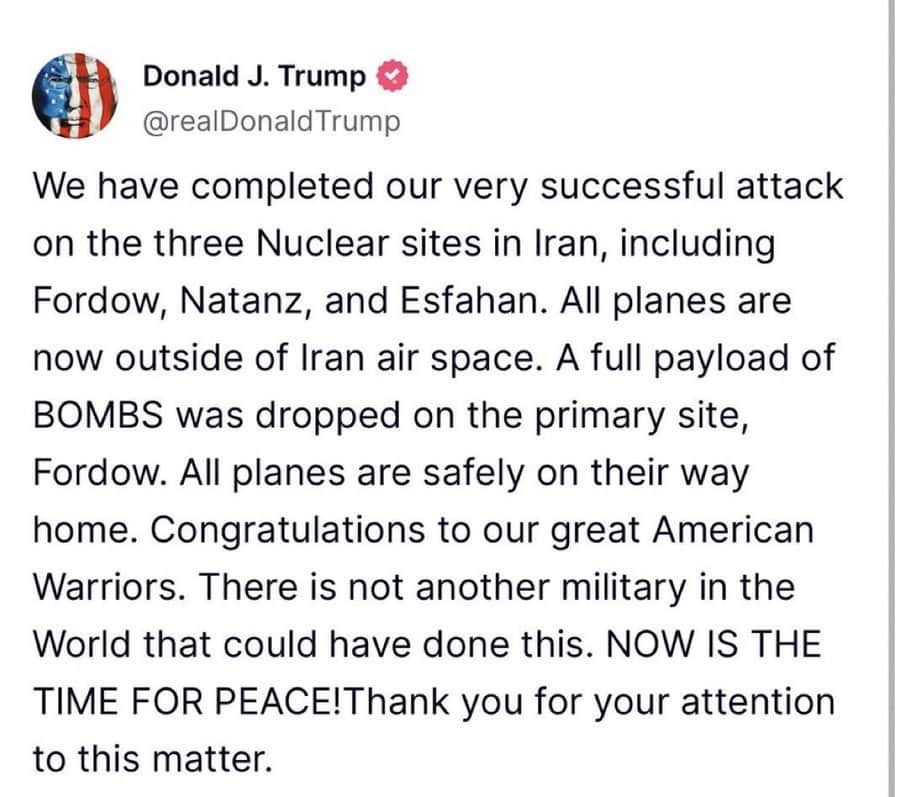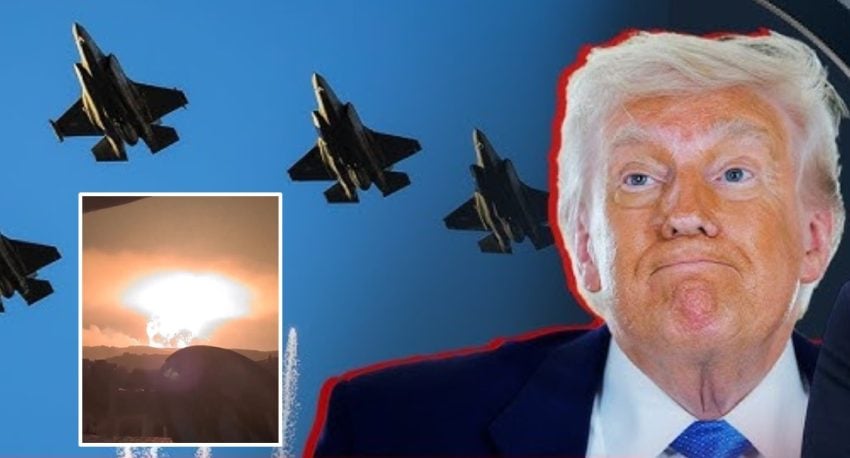WASHINGTON – Amid fear of full scale war, US jets bombed Iranian nuclear facilities in major escalation as President Donald Trump confirms airstrikes on Tehran, hitting Fordo, Natanz, and Isfahan.
America formally entered Iran-Israel conflict by launching a major aerial assault on three nuclear sites deep inside Iranian territory, dramatically shifting the trajectory of the regional war.
Reports said American warplanes bombed Iran’s Fordo, Natanz, and Isfahan nuclear facilities in what Trump called “the most difficult and perhaps the most lethal” mission to date. “If peace does not emerge soon, we are prepared to strike additional targets with precision, speed, and skill,” he warned, signaling Washington’s readiness for deeper involvement.

The airstrikes mark the first direct US military intervention since Israel began attacking Iranian military infrastructure on June 13. While Israeli officials claimed coordination with the US, this is the first time the Pentagon has acted independently and directly against Iranian territory.
The Pentagon used the GBU-57 Massive Ordnance Penetrator bombs—each weighing 30,000 pounds—designed to destroy fortified underground bunkers. Fordo, Iran’s most secure nuclear site, lies over 80 meters beneath a mountainside and is believed to be central to Tehran’s uranium enrichment program.
Each facility was struck by two of these powerful munitions. While Iran claims it had evacuated the sites and removed sensitive materials in advance, President Trump declared the nuclear facilities “completely obliterated.”
Iran and Israel has now exploded into a full-scale regional crisis. Iran had retaliated to Israel’s June 13 surprise offensive with waves of rockets and drones, triggering daily strikes between the two foes.
The US, which had been pushing for a return to nuclear negotiations, had earlier offered Iran a two-week window to re-enter talks—but that timeline was cut short with last night’s attacks.
Tehran vowed strong response, warning the US it has now opened the gates to an “all-out war” in the region. Tehran has hinted it may retaliate by targeting American military bases across the Middle East or disrupt oil shipping lanes in the Strait of Hormuz.
Israel, meanwhile, has moved to a high-security posture, suspending education, public gatherings, and normal business activities nationwide. The Israeli Defense Forces (IDF) said the alert level was raised following the American strikes, fearing Iranian retaliation.
US entry into the Iran-Israel war has been described by analysts as a turning point that could transform the conflict from a two-sided regional struggle into a broader international confrontation.
World powers, including the UN and EU, have issued urgent calls for de-escalation, warning that a prolonged war could destabilize the entire Middle East and beyond.














